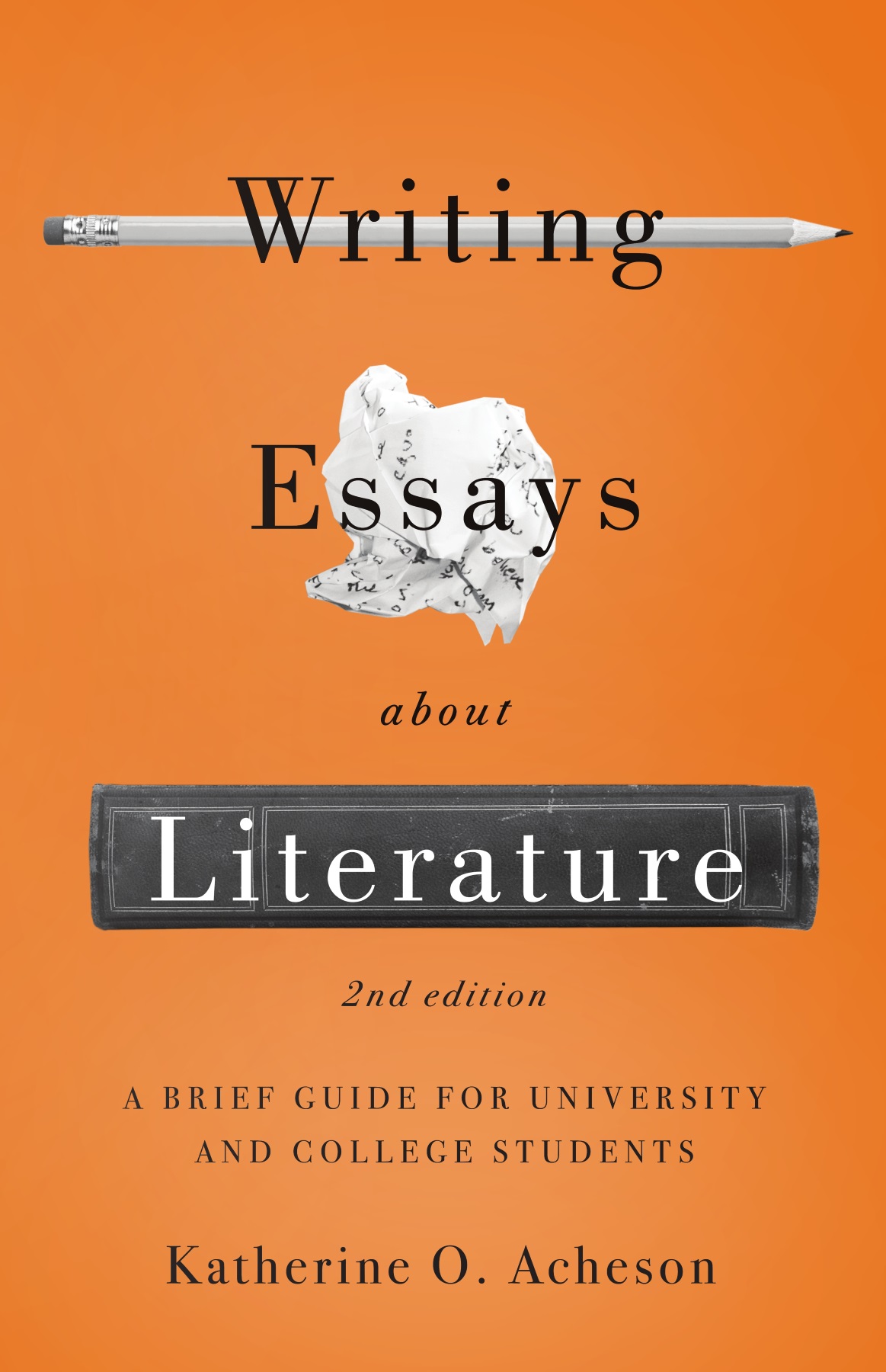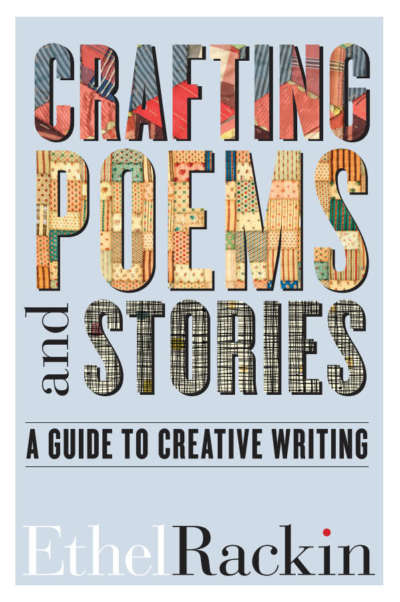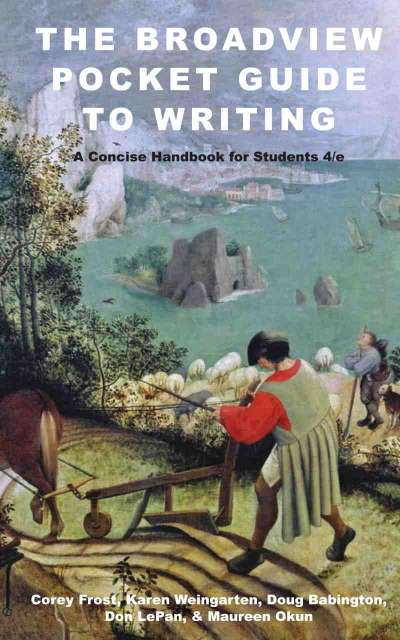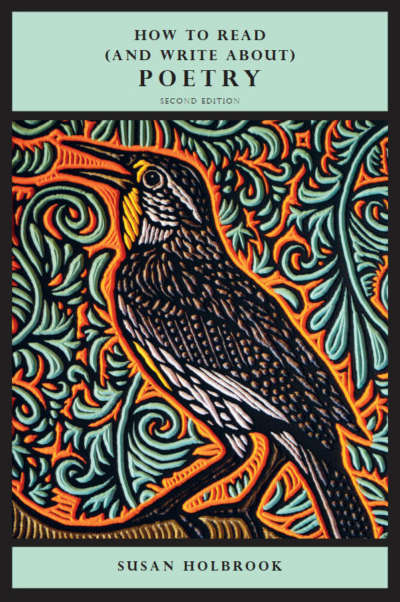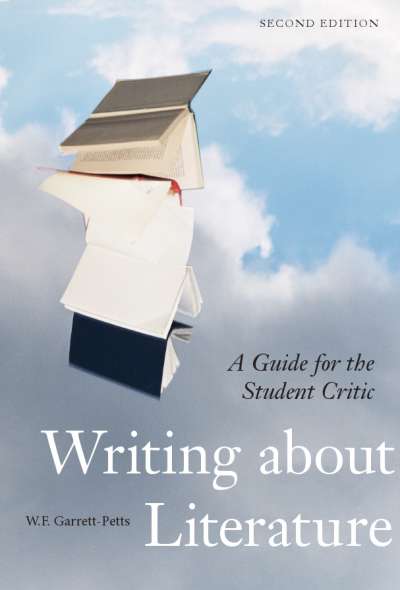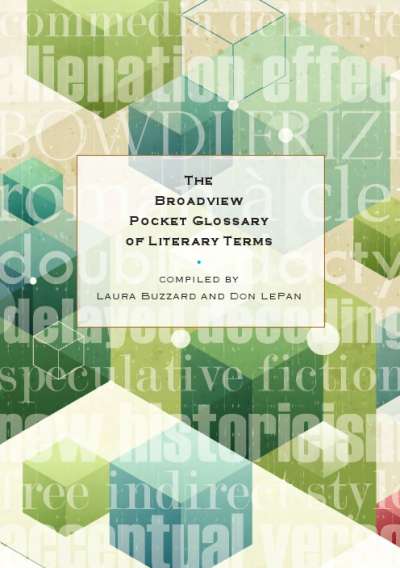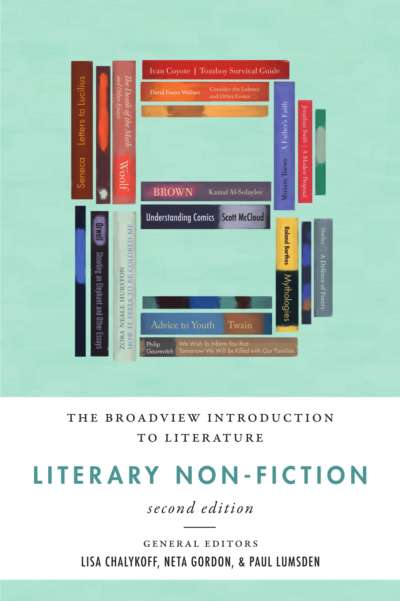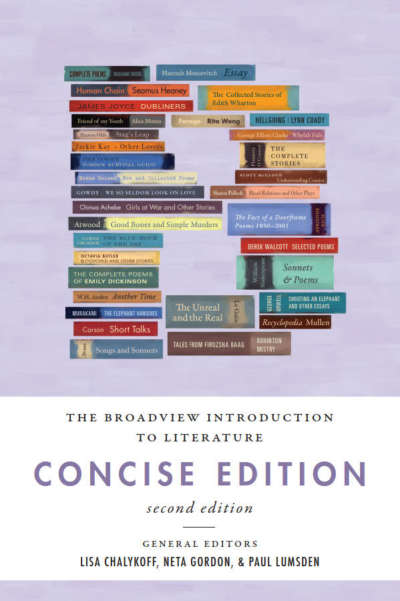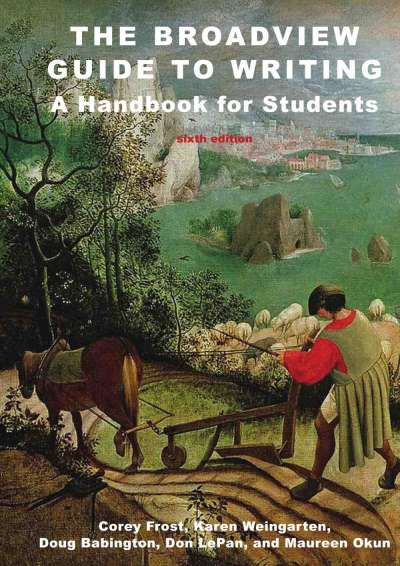This book gives students an answer to the question, “What does my professor want from this essay?” Using a single poem by William Carlos Williams as the basis for the process of writing a paper, it walks students through the processes of reading, brainstorming, researching secondary sources, gathering evidence, and composing and editing the paper.
Writing Essays About Literature is designed to strengthen argumentation skills and deepen understanding of the relationships between the reader, the author, the text, and critical interpretations. Its lessons about clarity, precision, and the importance of providing evidence will have wide relevance for student writers. The second edition has been updated throughout and provides three new complete sample essays showing varying approaches to the final essay.
Comments
“I’ve been using Writing Essays About Literature in my courses for years now because it is by far the clearest, most direct, and most engaging explanation of the processes of literary analysis. It explains through demonstration, taking readers through each step with the genuine curiosity we want to encourage in our students. The revisions to the second edition clarify the steps students struggle with most: developing the thesis statement as part of the introduction and then revising the thesis after writing the body of the essay.” — Kylee-Anne Hingston, St. Thomas More College
“I was especially impressed by the lively and approachable authorial voice in Writing Essays About Literature. Where students might be accustomed to start with a thesis and write an essay straight through from beginning to end, the book demonstrates a more nuanced writing process that is both inductive and recursive. It gives students the tools to do higher-level research and thinking, and it concludes with sample essays that model those outcomes.” — Sunny Stalter-Pace, Auburn University
Praise for the first edition
“I am a student studying English and American Studies, and this may be a bit unorthodox, but I wanted to say that Writing Essays About Literature was one of the best textbooks I have ever read … You have done a brilliant job making essay-writing easy, structured, and actually enjoyable!” — Lauren Gaylor, University of Kansas
Section One: Introduction
- Chapter One: The Purpose of an Essay about Literature
- Literature: Instruction, Delight, Imitation
- The Literary Essay
- Evidence
- Communication
- Subjectivity
- How to Use This Book
- Review Questions
Section Two: Research and Analysis
- Chapter Two: Research within the Text
- Taking Notes about Literature
- Recording Your Responses to the Text
- Do I Like the Work?
- What Words Stand Out?
- What Feelings Does It Give Me?
- Do I Identify with Any of the People Represented?
- Is There Anything about How It’s Written That Stands Out?
- What Is the Work about?
- Conclusion
- Review Questions
- Chapter Three: Using Reference Works
- The Oxford English Dictionary
- Etymology
- Definitions
- Examples of Usage
- Scholarly Editions
- Encyclopedias
- Conclusion
- Review Questions
- Chapter Four: Research about Social and Historical Contexts 55
- Topics for Research: Social Phenomena and Literary Movements
- Useful Resources
- Using Your Findings
- Conclusion
- Review Questions
- Chapter Five: Research about the Current Critical Assessment of Literary Works
- Finding Critical Works
- Assessing Publications
- Using Bibliographies
- Reading Critical Works
- Taking Notes from Critical Readings
- Conclusion
- Review Questions
- Chapter Six: Inventing Your Argument
- Arranging Your Evidence
- Reviewing Your Labeled Evidence
- Categorizing Your Evidence
- Charting Your Evidence
- Conclusion
- Review Questions
Section Three: Composition
- Chapter Seven: Composing Your Argument
- Inductive Reasoning
- Composing the Thesis Statement
- Writing the Subtopic Sentences
- Composing the Body of the Introduction
- Concluding the Introduction
- A Variation: An Essay without Secondary Sources
- Conclusion
- Review Questions
- Chapter Eight: Writing the Body of the Essay
- The Body Paragraphs
- Features of Strong Paragraphs
- Writing the Conclusion and Revising the Introduction
- The Conclusion
- Revising the Introduction
- Conclusion
- Review Questions
Section Four: Polish and Presentation
- Chapter Nine: Editing and Proofreading Your Essay
- Conventions of Essay-Writing Style
- Diction
- Vocabulary
- Connecting Words
- Common Grammatical Errors
- Apostrophes
- Demonstrative Pronouns
- Pronoun Agreement
- Verb Tense
- Common Errors in Punctuation and Sentence Structure
- Semicolons
- Comma Splices
- Sentence Fragments
- Subordinating Conjunctions
- Conjunctive Adverbs
- Conclusion
- Review Questions
- Chapter Ten: Documenting Your Sources and Presenting Your Work
- Reasons for Documenting Sources 147
- Presenting Your Work
- Layout and Order
- Illustrations
- Multimedia and the Literary Essay
- Exemplary Illustrations
- Complementary Illustrations
- Supplementary Illustrations
- Last-Minute Checks
- Conclusion
- Review Questions
Section Five: Conclusion and Review
- Chapter Eleven: The Process of Essay Writing—A Summary
- Collecting Evidence (Chapters 2-5)
- Categorizing Evidence (Chapter 6)
- Writing Your Thesis Statement (Chapter 7)
- Troubleshooting the Thesis Statement (Chapter 7)
- Writing the Body Paragraphs (Chapter 8)
- Concluding Your Essay (Chapter 8)
- Proofreading (Chapter 9)
- Documentation and Presentation (Chapter 10)
- Conclusion
Sample Essay One
Sample Essay Two
Sample Essay Three
Works Cited
Permissions acknowledgment
Subject Index
Katherine O. Acheson is Professor of English at the University of Waterloo and the editor of the Broadview Edition of Lady Anne Clifford’s Memoir of 1603 and Diary of 1616–19.

